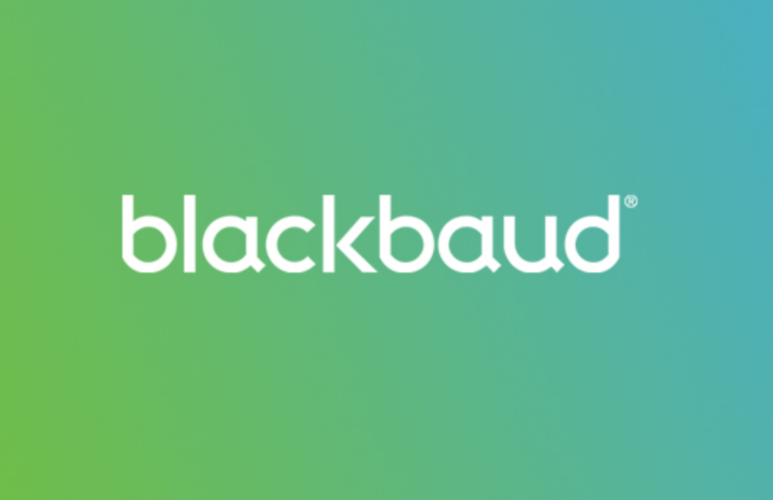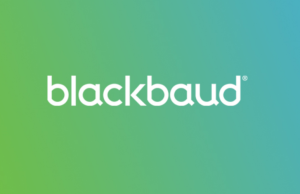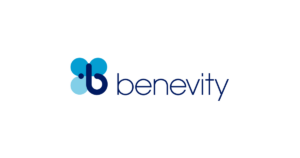Software as a service giant Blackbaud reported first-quarter revenue of $279.3 million for the three-month period ending March 31, up 6.7% from the same period of a year ago. The gain represented organic revenue growth of 6.9%, which equated to a 6.6% organic revenue growth rate in constant currency after adjusting for foreign currency exchange rate fluctuations.
Recurring revenue ($271.5 million) once again dominated at 97% of total revenue for the quarter, which was consistent with recurring revenue percentages for the previous year. Recurring revenue dollars were also up 7.4% compared to the first quarter of a year ago.
The company fell short of its stated goal of achieving Rule of 40 performance after doing so during the previous two quarters. The Rule of 40 is a widely held principle among investors that a software company’s combined profit margin and organic revenue growth rate should equal or exceed 40% for it to be considered on a solid financial footing. Profit margin is calculated by tallying the earnings growth rate before interest, taxes, depreciation and amortization (EBITDA).
For the first quarter of 2024, profit margin (31.8%) and organic revenue growth rate (6.9%) totaled 38.7%. Prior results for 2023 were 29.5% (Q1), 35.6% (Q2), 41.6% (Q3), and 41.0% (Q4). SaaS companies that consistently surpass the 40% threshold are considered to be generating profit at a rate that’s sustainable while companies below 40% might face cash flow or liquidity issues.
Blackabud CEO Michael Gianoni said during an earnings call with investors that he is confident the company would achieve Rule of 40 performance for the year. “Blackbaud is a much stronger company than it was just one year ago and remains the clear market leader in the social impact software market,” Gianoni said. “We believe we are well positioned for the future and are confident in our ability to achieve the Rule of 40 for the full year.”
Blackbaud is currently examining a $4.3 billion offer from its largest shareholder, Clearlake Capital Group, to take the company private. The offer came this past April after Blackbaud’s board voted to repeal a so-called “poison pill” shareholder rights plan adopted late last year to prevent any entity from acquiring more than a 20% stake. Clearlake hold 18.3% of Blackbaud stock based on data from the London Stock Exchange Group.
With the buyout offer looming, Blackbaud is also in the midst of plans to repurchase 7% to 10% of its stock by the end of this year under a $500 million stock buyback plan approved in January. The company is well on its way to achieving that objective, having already purchased approximately 3 million of the more than 53.6 million shares outstanding it had at the start of this year, according to information released during the Q1 earnings call.
Blackbaud is still dealing with fallout from its May 2020 data breach which cost the firm $2 million during the quarter. The firm entered a $3 million settlement with the Securities and Exchange Commission (SEC) in March 2023 and another $49.5 million settlement with 49 states and the District of Columbia in October 2023 for its alleged misleading disclosures regarding the ransomware attack. However, California is not a party to either settlement. An unknown number of private customers are also petitioning for class-action status in preparation for a possible lawsuit.
Detailed datapoints from Blackbaud’s first-quarter results include:
- GAAP (generally accepted accounting principles) total revenue was $279.3 million, up 6.7%, with $271.5 million in GAAP recurring revenue, up 7.4%.GAAP recurring revenue was 97% of total revenue.
- Non-GAAP organic recurring revenue increased 7.4%.
- GAAP income from operations was $10.7 million, or about half what it would have been had it not been for $10.3 million in legal and other costs stemming from the 2020 data breach.
- GAAP operating margin was 3.8%, an increase of 760 basis points.
- Non-GAAP income from operations was $72.4 million with non-GAAP operating margin of 25.9%, an increase of 430 basis points.
- GAAP net income was $5.2 million with GAAP diluted earnings per share of $0.10, up $0.38 per share.
- Non-GAAP net income was $49.5 million with non-GAAP diluted earnings per share of $0.93, up $0.21 per share.
- Non-GAAP adjusted earnings before interest, taxes, depreciation, and amortization (EBITDA) was $88.9 million, up $17.6 million. Non-GAAP adjusted EBITDA margin was 31.8%, an increase of 460 basis points.
- GAAP net cash provided by operating activities was $64.6 million, an increase of $42.8 million but less than it would have been had it not been for $2 million in payments incurred relative to the 2020 data breach. GAAP operating cash flow margin was 23.1%, an increase of 1,480 basis points.
- Non-GAAP free cash flow was $51.3 million inclusive of the $2 million in payments incurred due to the 2020 data breach. Non-GAAP free cash flow increased $44.8 million and non-GAAP free cash flow margin was 18.4%, an increase of 1,590 basis points.
- Non-GAAP adjusted free cash flow was $53.3 million, an increase of $37.6 million. Non-GAAP adjusted free cash flow margin was 19.1%, an increase of 1,310 basis points.









